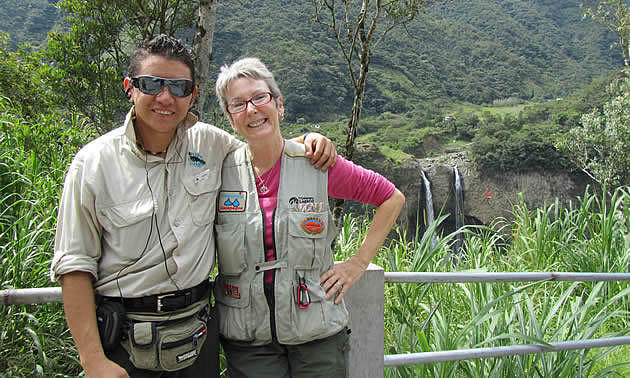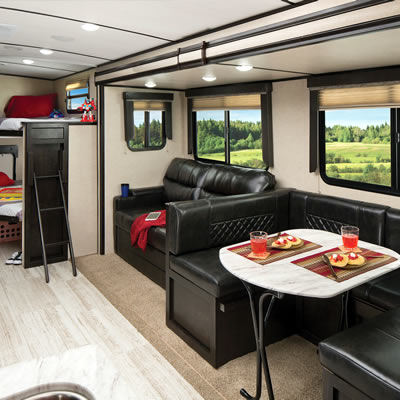From Yuma to the rainforest
An Arizona author talks about the highlights of her book and her hometown.

For avid RVer and Yuma-based author JoAnne Mowczko, the best part of hopping into her Winnebago View with her husband every summer is visiting camping sites, national parks and points of interest along their route to fully experience new places.
But after the couple decided to park their mobile home and fly to the Galapagos Islands and the Ecuadorian Amazon rainforest two years ago, the retired 64-year-old biologist and teacher said she returned home feeling as though she lacked a full understanding of the indigenous culture of the native Achuar people.
“After we got home, I started contacting the people at the Kapawi Ecolodge that we had stayed at and other foundations that are involved with some of the native populations,” said Mowczko. “A year and a half later, I was able to submit a proposal to the Achuar. They were receptive to my idea, which was to write an ecotourism book about their culture for tourists, with all proceeds from book sales going to the tribe.”
Mowczko said she felt compelled to complete the project.
“I’m volunteering all of my time and costs involved in this because I think it’s so worthwhile and it will benefit the Achuar so much,” she said.
To research the book, Mowczko personally funded a return trip to the Kapawi Ecolodge in January and February of 2011 to conduct field research. For two months she lived among the Achuar, examining medicinal plants and the ecosystem, meeting with the shaman and participating in their cultural traditions and celebrations.
“There are no roads leading to the home of the Achuar people, who have only been exposed to the western world for 50 years,” said Mowczko. “They have been the stewards of the rainforest for eons and have been able to live in balance. Contact with the West has impacted that.”
Mowczko said the Achuar people were in favour of her project.
“The reason they have embraced ecotourism is that oil companies are encroaching on their territory and threatening to destroy the rainforest,” she said.
Once the ecotourism book is complete, Mowczko said, it will be available online at www.kapawi.com, with all proceeds from book purchases going towards the preservation of the Achuar homeland and way of life.
She is currently editing the book in its rough form from her home in Yuma, where she said “the weather is beautiful this time of year” and there are enough upcoming block parties, festivals and attractions to bear out a second tourism book.
For snowbirds looking to experience Yuma the way the locals do this winter, Mowczko recommends a stop at Lutes Casino, a historic building in the heart of downtown Yuma.
“It’s not really a casino,” said Mowczko. “Now it’s a historic restaurant with unique decor. Their specialty is the especial, a hotdog and hamburger combination.”
Originally built in 1901 as a general store with a hotel located on the second floor, the building once played host to illegal gambling that took place in the basement.
Though the function of the building may have changed, Mowczko said that to this day, for those in the know, Lutes is where the elite meet in Yuma.






